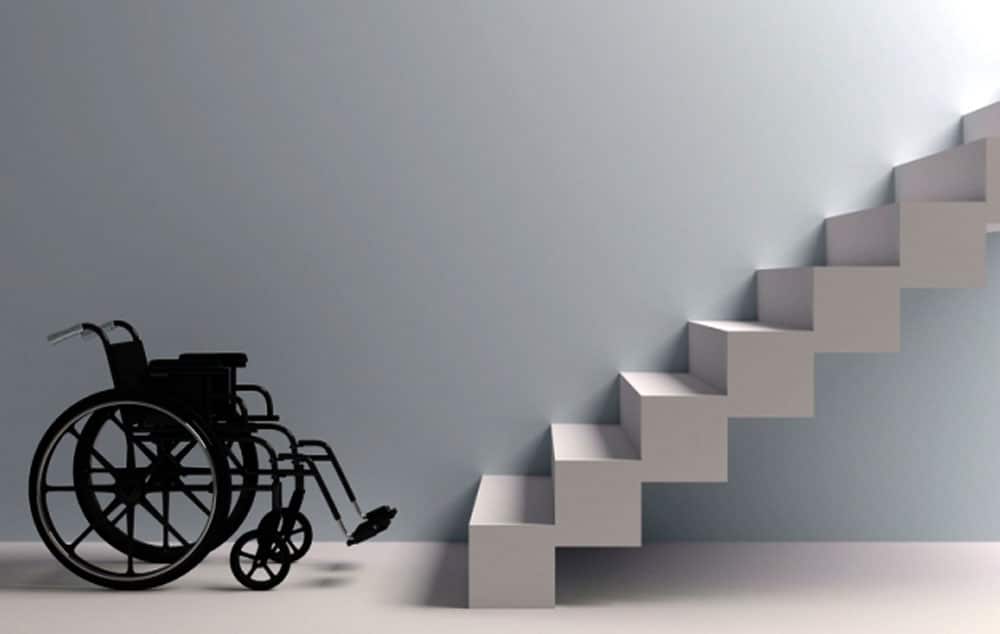For Nidhi Goyal, walking around and using technology with ease in no big deal — you can’t tell she’s visually impaired. “Once people know you are blind, the stereotypes kick in and you are assumed to be feeble, hesitant, in need of help,” says Nidhi.
But travel sets her back a bit! Travelling, whether for business or pleasure, is equally important for people with disabilities. According to the 2011 Census, India has a total population of 1.25 billion people out of which 2.21 percent (27 million people) are living with some kind of disability. To break it down further, for every one lakh population in the country, there are 1,755 people who have one or the other disability. One of the biggest challenges faced by these staggering numbers is the search for hotels that are disabled-friendly. Even more so, finding these accessible hotels in the vicinity of tourist attractions and activities.
So we are talking about accessible tourism.
Accessible tourism is about making travelling easy and enjoyable for all people irrespective of their age, gender and/ or physical restrictions. It is a set of services for individuals with specific requirements. With the disability population on the rise, it is the need of the hour to make accessible tourism possible. People with disabilities rarely travel alone and are almost generally accompanied by at least one companion — this is one reason why making tourism accessible should be viewed as an opportunity rather than an obligation.
A recent study conducted by the EU in 2013 claims that people with disabilities find information on accessible travel insufficient and not completely reliable. The study was conducted in Europe and concentrated largely on European nations. If a developed nation hasn’t been able to look after the accessibility needs of people with disabilities, a developing nation like ours still has a long way to go. However, that is no excuse to get away from the responsibility.
Neha Arora, the Founder of Planet Abled, the travel company that exclusively caters to the requirements of people with disabilities, was born to a visually impaired father and an orthopedically disabled mother. She grew up seeing her parents struggle on a daily basis. She realised at a young age that travelling is not an accessible entity.
Back in 2009, the government had made it mandatory for all hotels across the country to comply with the needs of people with disabilities with respect to accessibility, special rooms with bathrooms and other necessary facilities in an attempt to follow some of the best international practices in the hotel industry. The Tourism Ministry had attempted to address every major concern to make hotel stays friendlier for people with disabilities. In fact, even issues such as safety and security depending on the star category hotels were also a point of discussion.
The ground reality is way different, though. Even though 18.11 percent (in 2001) of our population should benefit from accessible travel, most tourist-friendly locations are far from being accessible to people with disabilities. In India, only one room in 250 rooms is allocated in hotels for people with disabilities, whereas internationally the ratio is 1:50.
Some of the issues people with disabilities face when travelling include getting reliable information on accessible accommodation, getting around their destinations, finding wheelchair accessible, local transport, adapted hotels, toilets, restaurants/ bars and the availability of disability equipment on rent.
The problem isn’t just faced by people with disabilities, it is also faced by people coming from different backgrounds, which includes medical tourists. Medical tourism isn’t a new phenomenon, but the way globalisation is promoting cross-border medical care is comparatively new and has been a developing industry. Lower labour and living costs, availability of inexpensive pharmaceuticals and the low cost or absence of malpractice insurance lets several developing countries offer medical procedures at just 10 percent of the cost in the United States.
Accessible tourism is not only about constructing platforms for wheelchairs. Accessibility in hotels is inclusive of accommodation (rooms and bathrooms), culinary specialties, in-house staff who can use sign language, organising guided tours for people with disabilities and guidebooks for tourists with sight impairments.
While there is a growing number of Asia Pacific countries that are paying attention to this issue, there are still certain barriers that prohibit people with disability to genuinely enjoy their travel experiences (UNESCAP, 2005).
Making tourism accessible to people with disabilities is also a great business opportunity for hotels in the country — whether it is at a national level with the government promoting tourism or at an individual level.
If a person with disability prefers you, his family and friends prefer you too!
Making tourism accessible for all is a long-term commitment and requires a great deal of planning, plus technical and financial resources. The best way to begin is one step at a time.
Source: Your History



